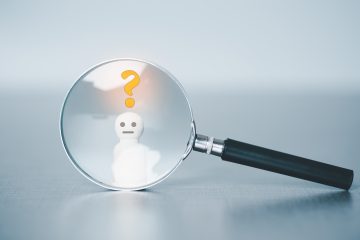I had a powerful experience of ego in a conflict that I wrote about in my last article – Responsibility in Conflict Resolution – after which a reader asked me to talk about ego in more detail. Thinking about ego, it made me realise that I do see it differently. I think ego is both a noun and a verb.
Ego (Noun)
As a noun, ego in psychoanalysis terms is the part of the mind that mediates between the conscious and the unconscious and is responsible for reality testing and a sense of personal identity (1).
Put simply ego is your identity, or your idea or opinion of yourself, especially your feelings of your own importance and abilities (2).
Ego is the voice inside your head, it’s how you express yourself. In emotional intelligence terms, it is the components of self-perception and self-expression: self-regard, self-actualisation, emotional self-awareness and emotional expression, assertiveness and independence.
Being Ego (Verb)
The act or behaviour of ego is often thought of as negative, however, I believe there are two types of being ego: negative and positive.
Ego-Negative
The behaviour of ego as a negative is a sliding scale that starts at egocentric – the world revolves around you and you think only of yourself; to egotistic, which is where you consider yourself better or more important than everyone else. At the extreme end of the scale, you have an egomaniac.
An egomaniac has very high degrees in their self-importance and their self-righteousness. They believe the world owes them everything and is required to do their every bidding. For some bizarre reason, a certain US President comes to mind as an example of an egomaniac. Jokes aside, some celebrities lose touch with reality and become so used to doing nothing for themselves that it becomes a requirement rather than a privilege. Their dramatic, temper-tantrum behaviour can be considered quite ego-maniacal.
The thing about people who are being ego-negative is that these people are often so fundamentally unaware of themselves that they do not realise that their behaviours are being driven by fear.
When we experience fear, we automatically go into protection mode. Our brains will literally delete, distort and generalise information we’re receiving to protect us from the things we fear. These fears will drive our behaviours in ways that support us but do not seem normal or appropriate to others.
Let me give you an example. So the person I spoke about in my last article has told blatant lies involving people I know. Naturally, to seek evidence, I asked these people for their account of events. I learned that this now ex-client received information that was contrary to what supported the story he wanted to tell me.
Even though he told lies, I do not believe he did so with complete consciousness. Having coached this man for many months I know he has extremely low self-worth and that one of his primary fears is that he isn’t good enough. It’s actually quite a common fear a lot of my clients have.
In what is just my opinion – albeit an educated one – I believe that his fear of not being good enough superseded the truth of what was really said to him. His brain received the information and then distorted it to suit the story that would protect him from his fears. His subsequent behaviour was egocentric. He was only thinking of himself and how this information could be used to benefit him and his business.
Because I and the people involved are highly qualified in emotional intelligence and NLP, we could see this behaviour for what it was so fortunately, no real damage has been done to my relationships but his reputation now is sadly forever blacklisted.
Fortunately, there is a way to correct being ego-negative and that is by being ego-positive.
Ego-Positive
As we move further into the fourth industrial revolution, the technology age, there is an increasing need for us to be transformational leaders – even if we’re not in leadership positions. Transformational leadership asks us to demonstrate behaviours of authenticity, innovation, coaching and insight, among others.
When we are being ego-positive the use of your ego comes from a place of authenticity. Authenticity asks us to be vulnerable, raw, and real. Being ego-positive is where your actions are motivated by love and a willingness to learn from your mistakes.
When I was writing the last article, I had to sense-check multiple times. Was I writing from a position of fear or love? It took me more than three weeks and countless drafts to end up with the version I published and that’s because I was hurt by this person’s actions. Pain (hurt) is driven by loss, which is motivated by fear.
This person took something away from me, something I care deeply for, the opportunity to help people. I believe his fear drove him to do something in an attempt cause me pain. Why? I will likely never know.
The important point here is my motivation to share my story wasn’t about defending myself, which is fear-based, it was about insights, lessons learned and responsibility that I could take. My writing then, as it is again today, was based in love. I am willing to be authentic and vulnerable.
How to Move From Ego-negative to Ego-positive Behaviour
When you are typically a positive, kind, compassionate person it can come as a shock to find yourself being ego-negative. Here are my steps for learning from my ego-negative behaviour.
#1 Be Kind to Yourself
Acknowledge your shitty behaviour, apologise to yourself for being a shitty human and then…
#2 Ask: What is the Fear?
Remember, being ego-negative means that something has threatened you. Your brain wants to protect you. What was it?
I have found journaling to be a great method of extracting my deepest, most private thoughts and feelings. I go one step further and ask myself questions in the third person – as in, what were you afraid of? Rather than, what am I afraid of? This will utilise a different part of your ego (noun) and tap into your unconscious motivations.
#3 Seek Closure
If you need to apologise to someone, do it. It’s not your responsibility if they don’t accept it. Your responsibility is to own your shit, that’s it.
When you do apologise, seek the other person’s perspective. Shut up and listen.
If you interrupt you’re operating from a position of ego-negative and fear. You don’t have to accept what’s being said, but you don’t get to diminish another person or their opinion if they are willing to be honest with you.
Keep in mind, they don’t know what you know about ego-negative and ego-positive states, so be prepared to work your emotionally intelligent empathy skill to be able to see things from their perspective.
In doing so you will see yourself in a new light, you will learn ways to improve and you’ll be better, less shitty human.
And really, isn’t that what we all want; to be better people?
Your EQL Coach,
![]()


